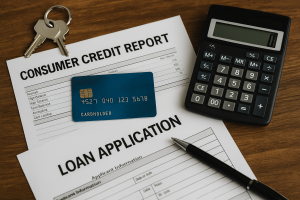In the United States, credit cards are ubiquitous, offering convenience and purchasing power to millions of consumers. However, with this convenience comes the risk of accumulating high levels of debt if not managed properly.
Effectively managing credit card debts is crucial to maintaining financial stability and avoiding potential long-term consequences. This article explores strategies and tips for managing credit card debts in the USA in a responsible and effective manner.
Understanding Credit Card debts

Before delving into strategies for managing credit card debts, it’s essential to understand how these debts accrue and their potential implications. When you make purchases using a credit card, you are essentially borrowing money from the card issuer.
If you fail to pay off the full balance by the due date, you will incur interest charges on the remaining balance. Additionally, missing payments or paying less than the minimum amount due can result in late fees and damage to your credit score.
Creating a budget and payment plan
One of the first steps in effectively managing credit card debts is creating a comprehensive budget that outlines your income, expenses, and debt obligations. Start by listing all sources of income, including wages, bonuses, and any other sources of revenue.
Next, track your monthly expenses, including housing, utilities, groceries, transportation, and discretionary spending. Once you have a clear understanding of your finances, develop a payment plan to tackle your credit card debts.
Prioritize paying off high-interest debts first while making at least the minimum payments on all other cards. Consider using the debt snowball or debt avalanche method to accelerate your debt repayment strategy.
Exploring debt consolidation options
For individuals struggling to manage multiple credit card debts, debt consolidation can be a viable option. Debt consolidation involves combining multiple debts into a single loan with a lower interest rate, making it easier to manage payments and potentially reducing overall interest costs.
There are several debt consolidation options available, including personal loans, balance transfer credit cards, and home equity loans. Before pursuing debt consolidation, carefully evaluate the terms and fees associated with each option to ensure it aligns with your financial goals.
Negotiating with creditors
If you’re facing financial hardship and struggling to make your credit card payments, consider reaching out to your creditors to explore potential hardship programs or debt settlement options.
Many credit card companies offer hardship programs that temporarily lower interest rates or minimum payments for eligible borrowers facing financial difficulties. Additionally, you may be able to negotiate with creditors to settle your debts for less than the full amount owed.
Keep in mind that debt settlement can have a negative impact on your credit score and may result in tax consequences, so it’s essential to weigh the pros and cons carefully before pursuing this option.
Seeking professional assistance
If you’re overwhelmed by your credit card debts and struggling to develop a plan to repay them, seeking professional assistance from a credit counseling agency or financial advisor may be beneficial.
Credit counselors can provide personalized guidance and support to help you develop a budget, negotiate with creditors, and explore debt management options. Before enlisting the help of a credit counseling agency, research reputable organizations and verify their credentials. Be cautious of agencies that charge high fees or promise quick fixes for your financial problems.
Staying financially responsible
While managing credit card debts can be challenging, it’s essential to remain committed to financial responsibility and avoid falling back into debt. Make a conscious effort to live within your means, avoid unnecessary purchases, and prioritize saving for emergencies and future financial goals.
Regularly review your budget and adjust your spending habits as needed to stay on track with your debt repayment goals. Celebrate small victories along the way, such as paying off a credit card balance or reaching a savings milestone, to stay motivated on your financial journey.
Conclusion
Effectively managing credit card debts requires discipline, perseverance, and a proactive approach to financial planning. By creating a budget, exploring debt consolidation options, negotiating with creditors, seeking professional assistance when needed, and staying financially responsible, you can take control of your finances and work towards a debt-free future in the USA.
Remember that managing credit card debts is a journey, and small steps taken today can lead to significant financial freedom tomorrow.






